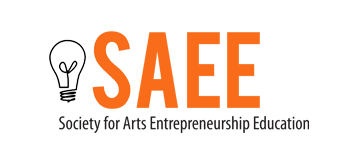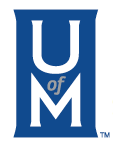Policies
Contents
- Philosophy of Journal of Arts Entrepreneurship Education
- Who Can Submit?
- General Submission Rules
- Formatting Requirements
- Rights for Authors and University of Memphis Digital Commons
Philosophy of Journal of Arts Entrepreneurship Education
For more information, please see Journal of Arts Entrepreneurship Education Aims and Scope page.
Who Can Submit?
Anyone may submit an original article to be considered for publication in Journal of Arts Entrepreneurship Education provided he or she owns the copyright to the work being submitted or is authorized by the copyright owner or owners to submit the article. Authors are the initial owners of the copyrights to their works (an exception in the non-academic world to this might exist if the authors have, as a condition of employment, agreed to transfer copyright to their employer).
General Submission Rules
Submitted articles cannot have been previously published, nor be forthcoming in an archival journal or book (print or electronic). Please note: "publication" in a working-paper series does not constitute prior publication. In addition, by submitting material to Journal of Arts Entrepreneurship Education, the author is stipulating that the material is not currently under review at another journal (electronic or print) and that he or she will not submit the material to another journal (electronic or print) until the completion of the editorial decision process at Journal of Arts Entrepreneurship Education. If you have concerns about the submission terms for Journal of Arts Entrepreneurship Education, please contact the editors.
Formatting Requirements
Journal of Arts Entrepreneurship Education has no general rules about the formatting of articles upon initial submission. There are, however, rules governing the formatting of the final submission. See Final Manuscript Preparation Guidelines for details. Although bepress can provide limited technical support, it is ultimately the responsibility of the author to produce an electronic version of the article as a high-quality PDF (Adobe's Portable Document Format) file, or a Microsoft Word, WordPerfect or RTF file that can be converted to a PDF file.
It is understood that the current state of technology of Adobe's Portable Document Format (PDF) is such that there are no, and can be no, guarantees that documents in PDF will work perfectly with all possible hardware and software configurations that readers may have.
Rights for Authors and University of Memphis Digital Commons
As further described in our submission agreement (the Submission Agreement), in consideration for publication of the article, the authors assign to University of Memphis Digital Commons all copyright in the article, subject to the expansive personal--use exceptions described below.
Attribution and Usage Policies
Reproduction, posting, transmission or other distribution or use of the article or any material therein, in any medium as permitted by a personal-use exemption or by written agreement of University of Memphis Digital Commons, requires credit to University of Memphis Digital Commons as copyright holder (e.g., University of Memphis Digital Commons © 2026).
Personal-use Exceptions
The following uses are always permitted to the author(s) and do not require further permission from University of Memphis Digital Commons provided the author does not alter the format or content of the articles, including the copyright notification:
- Storage and back-up of the article on the author's computer(s) and digital media (e.g., diskettes, back-up servers, Zip disks, etc.), provided that the article stored on these computers and media is not readily accessible by persons other than the author(s);
- Posting of the article on the author(s) personal website, provided that the website is non-commercial;
- Posting of the article on the internet as part of a non-commercial open access institutional repository or other non-commercial open access publication site affiliated with the author(s)'s place of employment (e.g., a Phrenology professor at the University of Southern North Dakota can have her article appear in the University of Southern North Dakota's Department of Phrenology online publication series); and
- Posting of the article on a non-commercial course website for a course being taught by the author at the university or college employing the author.
People seeking an exception, or who have questions about use, should contact the editors.
General Terms and Conditions of Use
Users of the University of Memphis Digital Commons website and/or software agree not to misuse the University of Memphis Digital Commons service or software in any way.
The failure of University of Memphis Digital Commons to exercise or enforce any right or provision in the policies or the Submission Agreement does not constitute a waiver of such right or provision. If any term of the Submission Agreement or these policies is found to be invalid, the parties nevertheless agree that the court should endeavor to give effect to the parties' intentions as reflected in the provision, and the other provisions of the Submission Agreement and these policies remain in full force and effect. These policies and the Submission Agreement constitute the entire agreement between University of Memphis Digital Commons and the Author(s) regarding submission of the Article.
Open Access Policy JAEE provides immediate open access to its content on the principle that making research freely available to the public is the most effective way to support the growth of knowledge. Authors share their work without restrictions and readers access all content for free. The journal is published under a Creative Commons CC-BY 4.0 license. Authors retain copyright of their work. For more information see the copyright and licensing section below.
All articles are assigned a DOI number (Digital Object Identifier) whereby it becomes possible to search and cite them without delay.
JAEE is accessible via the journal’s website at oaj.memphis.edu/index.php/jaee as well as via international search engines such as Google and Google Scholar.
Copyright and Licensing JAEE is published under a Creative Commons CC-BY 4.0 license, allowing third parties to copy and redistribute the material in any medium or format, and to remix, transform, and build upon the material, for any purpose, even commercially, under the condition that appropriate credit is given, that a link to the license is provided, and that you indicate if changes were made. You may do so in any reasonable manner, but not in any way that suggests the licensor endorses you or your use.
Copyright Notice Authors retain copyright of their work, with first publication rights granted to The Society for Arts Entrepreneurship Education (SAEE).
Privacy Statement The names and email addresses entered in the JAEE journal site will be used exclusively for the stated purposes of this journal and will not be made available for any other purpose or to any other party. The data collected from registered and non-registered users of this journal falls within the scope of the standard functioning of peer-reviewed journals. The journal’s editorial team collects such information only insofar as is necessary or appropriate to fulfill the purpose of the visitor’s interaction with the journal. It includes information that makes communication possible for the editorial process; it is used to inform readers about the authorship and editing of content and it enables collecting aggregated data on readership behaviors. Data that will assist in developing this publishing platform may be shared with its developer Public Knowledge Project in an anonymized and aggregated form, with appropriate exceptions such as article metrics. The data will not be sold by this journal or PKP nor will it be used for purposes other than those stated here. The authors published in this journal are responsible for the human subject data that figures in the research reported here. Those involved in editing this journal seek to be compliant with industry standards for data privacy, including the European Union’s General Data Protection Regulation (GDPR) provision for “data subject rights” that include (a) breach notification; (b) right of access; (c) the right to be forgotten; (d) data portability; and (e) privacy by design. The GDPR also allows for the recognition of “the public interest in the availability of the data,” which has a particular saliency for those involved in maintaining, with the greatest integrity possible, the public record of scholarly publishing.


